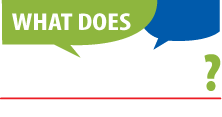Definition of: riddle
(rid′l) noun
1. A puzzling question or conundrum; anything ambiguous or puzzling.
2. Any mysterious object or person.
—v. ·dled, ·dling v.t. To solve; explain.
—v.i. To utter or solve riddles; speak in riddles. [OE rÅT/œdels <stem of rÅT/œdan interpret, solve] Synonyms (noun): conundrum, enigma, paradox, problem, puzzle. Conundrum signifies some question or statement in which some hidden and fanciful resemblance is involved, the answer often depending upon a pun; an enigma is a dark saying; a paradox is a true statement or fact that appears absurd or contradictory. The riddle is not so petty as the conundrum; it is an ambiguous or paradoxical statement with a hidden meaning to be guessed by the mental acuteness of the one to whom it is proposed; a problem may require simply study and scholarship, as a problem in mathematics; a puzzle may be in something other than a verbal statement, as a dissected map or any perplexing mechanical contrivance. Both enigma and puzzle may be applied to any matter difficult of answer or solution, enigma conveying an idea of greater dignity, puzzle applying to something more commonplace and mechanical. Antonyms: answer, axiom, explanation, proposition, solution.

I ASKED FOR A RIDDLE WITH PETTY
I ASKED FOR A RIDDLE WITH PETTY